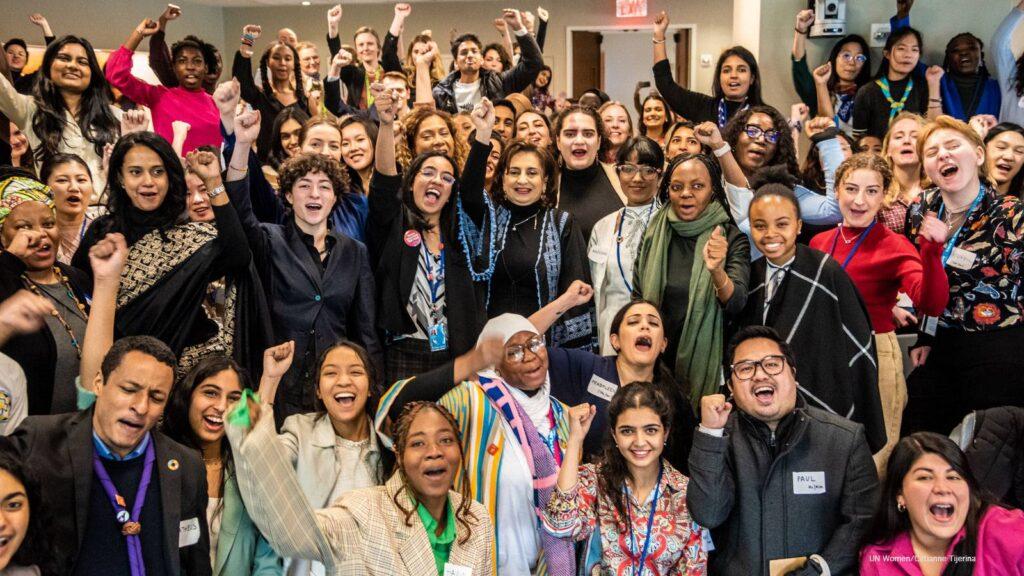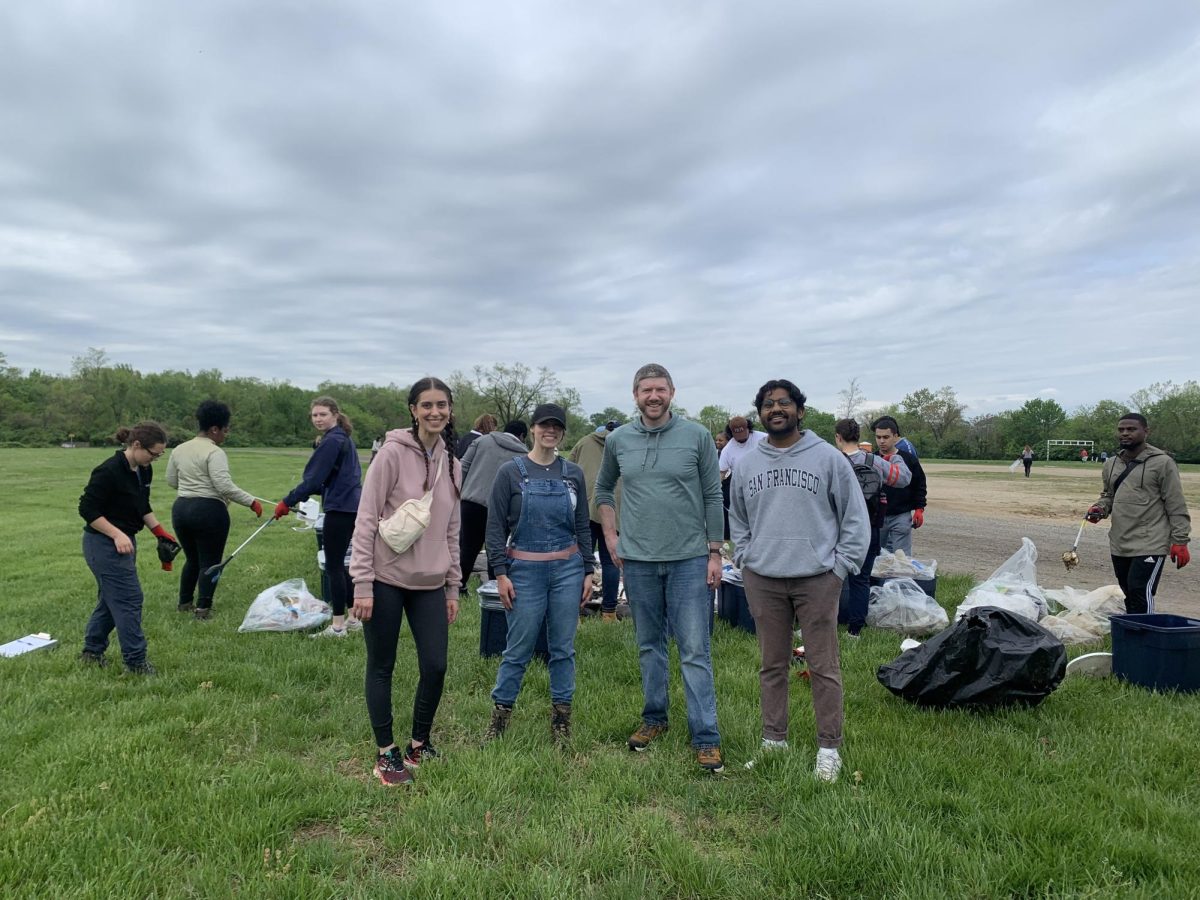The Georgetown University Institute for Women, Peace, and Security (GIWPS) co-sponsored events focused on gender equality and climate change at the 67th session of the United Nations’ Commission on the Status of Women (CSW67).
GIWPS hosted the events alongside the United Arab Emirates (UAE) government and several other partners in the global community. The sessions were held at the U.N. in New York City from March 6 to 17 and included “Gender Equality as a Prerequisite for Democracy,” “The Situation of Women in Afghanistan” and “Embracing Equity in Climate Action.”
Attendees at the events in New York City included representatives of U.N. missions from several countries, civil society activists, issue experts and policymakers from across the world, according to Melanne Verveer, former U.S. ambassador for global women’s issues and GIWPS executive director.
Shreyaa Venkat (SOH ’24) attended a March 10 side event on equity in climate action and asked panelists a question about the role of youth leaders in mobilizing intergenerational action to address social justice movements, such as climate change campaigns.
Venkat is a formal CSW delegate and the founder and CEO of nonprofit NEST4US, an organization that aims to mobilize volunteers around the world. Verveer said she was excited to watch Venkat share her insights on global equity issues.
“I was thrilled to see her engagement in youth leadership on climate,” Verveer wrote to The Hoya.

On March 10, GIWPS co-sponsored a consultation on gender and climate issues and the role that these topics will play at the 28th session of the Conference of the Parties (COP28), an annual gathering of country representatives to make decisions on climate change, which will take place in the UAE later this year.
Verveer said GIWPS has previously partnered with the UAE for events that have emphasized the effects of climate change on global security.
“We will continue to put a spotlight on climate, which is a key priority for us, as well as on Afghan women and girls, through out ‘Forward Afghan Women’ program,” Verveer wrote. “We also hope to be engaged on COP 28, as we have been in the previous two COP meetings.”
Verveer said the UAE used CSW67 as a way to hear the thoughts of several panelists selected for their perspectives on the role of women and youth within key subjects like climate change. Gender equality is vital to ensuring a fair transition toward a sustainable future, according to Verveer.
Verveer spoke at a March 9 event titled “What’s Next for Women in Afghanistan? Practical Ways Forward: Inclusive and Quality Education for Afghan Women and Girls,” which was about the international community’s obligation to support women and girls in Afghanistan amid the Taliban’s restrictions on their freedoms.
“The Taliban’s draconian restrictions on women and girls in Afghanistan require us to come together to explore entry points for the international community to address the Taliban-imposed ban on education for women and girls,” Verveer wrote. “We all agreed that there can be no replacement for formal schools and the right to an education but we discussed interim pathways to provide education in this difficult time for Afghan women and girls until schools are reopened and classroom doors unlocked.”
A spokesperson for U.N. Women said the Taliban’s ban on education for women, which was one of the topics that GIWPS and its co-sponsors discussed, has been detrimental to female empowerment, especially in the long run.
“This latest directive increases the pace of an already rapid downward movement toward regressive gender norms and blanket discrimination against women,” a U.N. Women publication reads. “It has induced many Afghan women to fear appearing in public and social settings increased their feeling of being a burden on their families, and caused loss of confidence, self-worth, and pride.”
Venkat said the conference demonstrated the role that youth leaders can play in mobilizing intergenerational action to address social justice movements, such as climate change campaigns.
“Overall, it was a very fruitful experience during which I learned so much about the progress currently being made in the context of gender equity, shared my experiences as a young female leader of color in the nonprofit space, and connected with change agents from across the globe,” Venkat wrote to The Hoya.




















